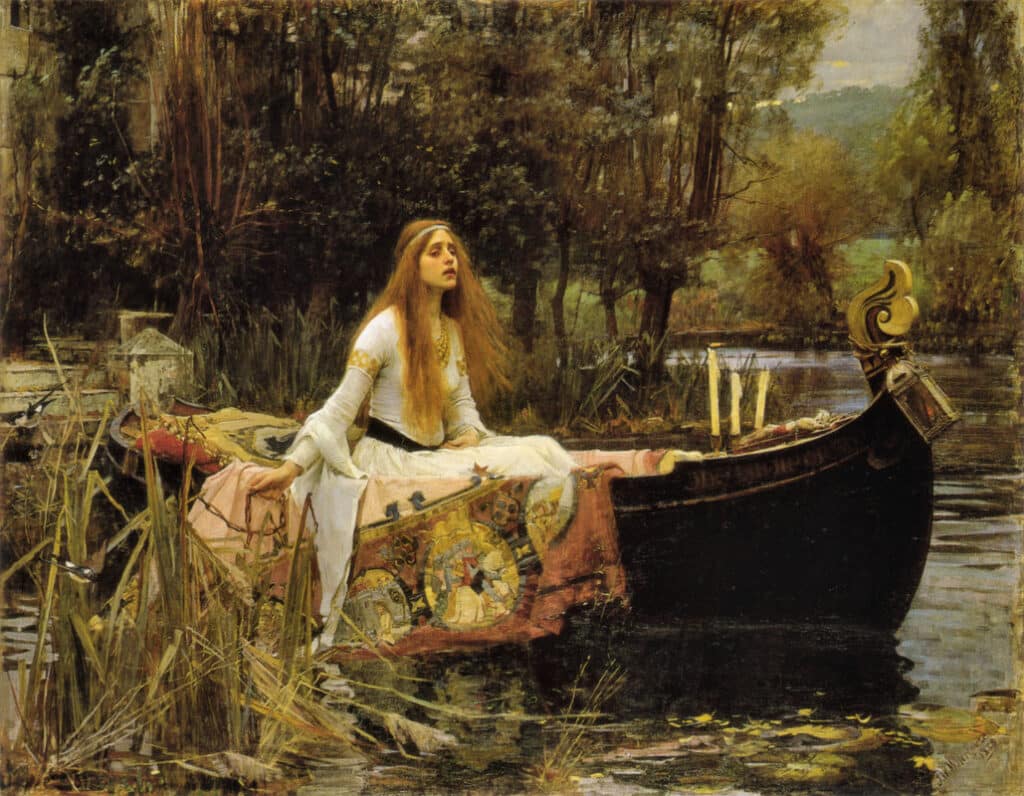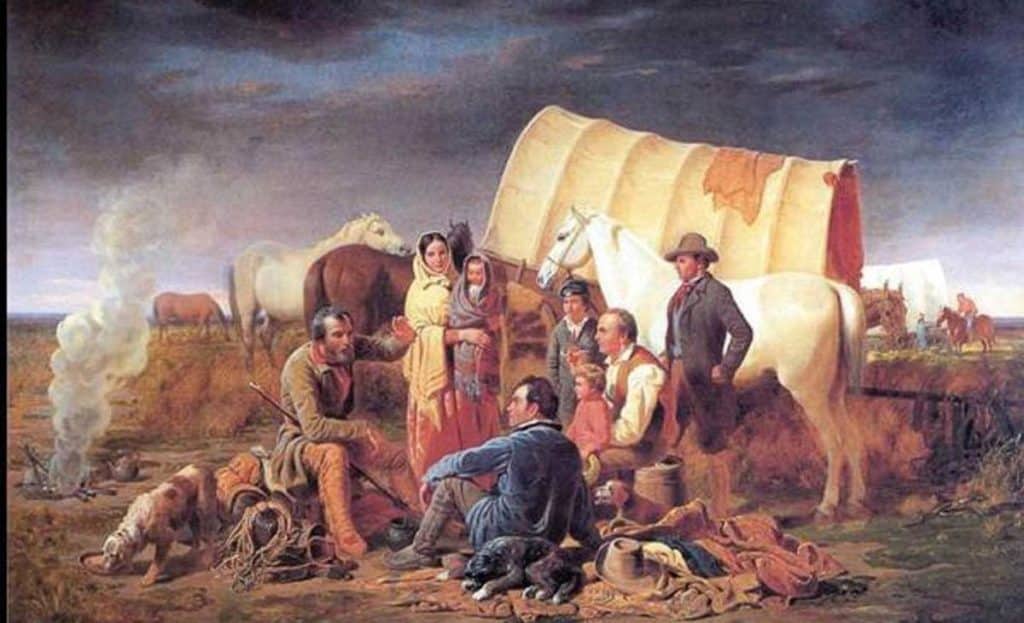Something there is that doesn’t love a wall,
That sends the frozen-ground-swell under it,
And spills the upper boulders in the sun;
And makes gaps even two can pass abreast.
The work of hunters is another thing:
I have come after them and made repair
Where they have left not one stone on a stone,
But they would have the rabbit out of hiding,
To please the yelping dogs. The gaps I mean,
No one has seen them made or heard them made,
But at spring mending-time we find them there.
I let my neighbour know beyond the hill;
And on a day we meet to walk the line
And set the wall between us once again.
We keep the wall between us as we go.
To each the boulders that have fallen to each.
And some are loaves and some so nearly balls
We have to use a spell to make them balance:
“Stay where you are until our backs are turned!”
We wear our fingers rough with handling them.
Oh, just another kind of out-door game,
One on a side. It comes to little more:
There where it is we do not need the wall:
He is all pine and I am apple orchard.
My apple trees will never get across
And eat the cones under his pines, I tell him.
He only says, “Good fences make good neighbours.”
Spring is the mischief in me, and I wonder
If I could put a notion in his head:
“Why do they make good neighbours? Isn’t it
Where there are cows? But here there are no cows.
Before I built a wall I’d ask to know
What I was walling in or walling out,
And to whom I was like to give offence.
Something there is that doesn’t love a wall,
That wants it down.” I could say “Elves” to him,
But it’s not elves exactly, and I’d rather
He said it for himself. I see him there
Bringing a stone grasped firmly by the top
In each hand, like an old-stone savage armed.
He moves in darkness as it seems to me,
Not of woods only and the shade of trees.
He will not go behind his father’s saying,
And he likes having thought of it so well
He says again, “Good fences make good neighbours”.
Summary and Analysis
-
Editors Rating
Summary
The primary theme of Robert Frost’s “Mending Wall,” first published in 1914, is the arbitrary separations that humans create between themselves. In the poem, the persona, or the poem’s speaker, meets with his neighbor to rebuild a stone wall that divides their two properties. He wonders why the wall is needed in the first place. His property consists of apples trees, while his neighbor’s consists of pine trees: “He is all pine and I am apple-orchard. / My apple trees will never get across / And eat the cones under his pines”. When the persona tells his neighbor this, the neighbor stubbornly repeats the adage he learned from his father: “Good fences make good neighbors”. The neighbor is unwilling to critically evaluate why the wall must be built. He continues to simply repair it year after year. Frost suggests that this wall, a metaphor for the separation we establish between ourselves and those around us, is unnatural and in fact damaging to our health. The poem begins, “Something there is that doesn’t love a wall, / That sends the frozen-ground-swell under it, / And spills the upper boulders in the sun”. This “something” that doesn’t love the wall must be nature, for the wall is slowly eroded by natural processes. Furthermore, while placing the fallen stones back on top of the wall, the persona says, “We have to use a spell to make them balance: / ‘Stay where you are until our backs are turned!’ / We wear our fingers rough with handling them”. The neighbors must use “spells,” a markedly unnatural process, to preserve the wall. Also, the neighbors’ hands are damaged while repairing the wall, which once more suggests that this repairing is an unnatural and unhealthy activity. With this, Frost uses the mending wall as an analogy for the interpersonal barriers that we create against other individuals on the basis of tradition, despite the fact that such barriers are unnecessary, unnatural, and antithetical to our well-being.


